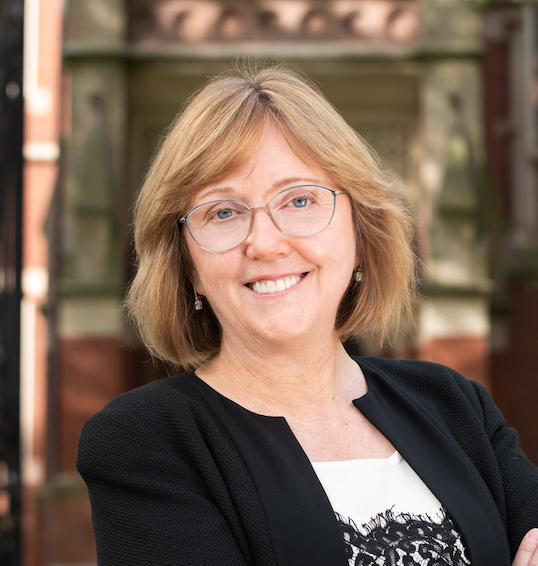Welcome to our special section, Thrive on Campus, devoted to covering the urgent issue of mental health among college and university students from all angles. If you are a college student, we invite you to apply to be an Editor-at-Large, or to simply contribute (please tag your pieces ThriveOnCampus). We welcome faculty, clinicians, and graduates to contribute as well. Read more here.
What we buy in life can tell us more about ourselves than we realize.
A group workshop in design thinking recently awakened me to this discovery.
The workshop facilitator — a Silicon Valley executive who graduated from the college where I now serve as president — began by pairing us off into groups of two.
“Think,” she then instructed us, “about the last big purchase you’ve made.”
Next, our task was to ask our partner five “why” questions about their purchase.
When it was my turn to share, I told my partner about a new rug. Her first “why” question was straightforward: Why did you buy a rug? I told her that my husband and I were furnishing a new home in Newburyport, Massachusetts.
Why this particular rug?, she then wanted to know. I told her it was love at first sight, a handmade Indian rug with pale blues, grays, and creams. As soon as we saw it, we thought, this will provide the right mood for our family room — calm and natural.
Her third question was one several friends have also asked: Why did you buy a new house now? I shared that our daughters live in towns near Newburyport, and each is expecting a second baby this summer. My husband and I want to be able to visit our grandchildren and help our daughters without crowding them and their families.
She pressed on. Why Newburyport in particular? I explained that Newburyport is bounded by the Atlantic Ocean to the east. I envision many walks by the ocean when I retire.
Why is the ocean special to you?, she queried. And then a sentence popped out of my mouth that surprised me. I confided that when I leave this world, I know that I will miss walks by the beach.
This modest design thinking exercise proved surprisingly insightful. I went from describing a rug purchase to identifying an existential practice that matters deeply to me, all in five seemingly simple questions.
After answering the final question, I began to reflect on why I love beach walks so much. After a few steps on the sand, I feel at peace. I don’t think about what to make for dinner or how many emails are in my inbox. Instead, I am focused on the rhythm of the waves, which breathe in and out in a predictable cadence; the ever-shifting sunlight on the surface of the water; and the ripples in the sand beneath my feet created by the last receding tide.
Love of nature is a familiar enough concept. Scientists describe the desire for humans to connect with the natural world as biophilia. The beauty of mountains, pastures, plains, and the sea disrupts the chaos of modern life, providing us with what the poet and playwright T. S. Eliot called “the still point of the turning world.”
Last year, while walking along a small river near my home, I tweeted a photo with a simple, two-word caption: “forest bathing.” The caption referred to the Japanese concept of immersing oneself in nature, taking in the forest through the senses. Many of my social media followers resonated with this tweet. Even if you’d never encountered the concept of forest bathing, the mere phrase sounds renewing.
An abundance of research supports the thesis that time spent in nature elevates our mood. Although the mechanism for this phenomenon is unclear, physicians have speculated about it. The late neurologist and author Oliver Sacks described the impact of nature in this way — we find “ourselves simultaneously calmed and reinvigorated, engaged in mind, refreshed in body and spirit.”
A few months ago, when my brother-in-law learned he only had weeks to live, he told me and my husband: “I hope I live to see my redbud tree bloom one last time.” Earlier in the year, I read an essay by Rachel Clarke, an English palliative care physician, about life’s last moments. Her advice to the dying and their loved ones is to open a window because, in her words, “just nature is enough.” Her patients yearn for fresh air, for a blackbird’s song, and for flowers — one described seeing “the whitest, frothiest, blossomest blossom that there ever could be” from his window. Perhaps we yearn for nature when we are struggling to separate from the physical world.
And perhaps I was channeling this essay somehow when I confided to my design thinking partner the importance of beach walks for me.
A good friend recently took a job after several years of retirement. When I asked him what motivated his return to work, he replied, “How many beach walks can one take?”
For me, the answer is simple: an infinite number.
Subscribe here for all the latest news on how you can keep Thriving.
More on Mental Health on Campus:
What Campus Mental Health Centers Are Doing to Keep Up With Student Need
If You’re a Student Who’s Struggling With Mental Health, These 7 Tips Will Help
The Hidden Stress of RAs in the Student Mental Health Crisis


